Drag Queens and Crossdressers: Understanding the Differences
At first glance, it might seem like there is only one definition for both crossdresser and drag queen.
In actuality, however, there are many different definitions for each term and they mean different things.
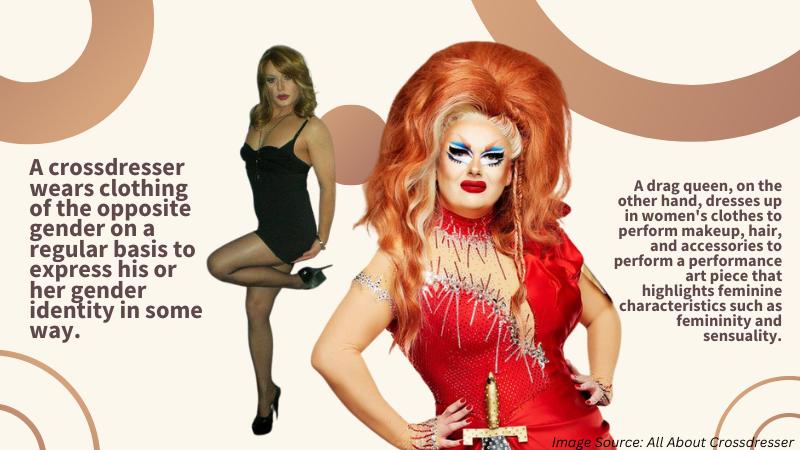
A crossdresser wears clothing of the opposite gender on a regular basis to express his or her gender identity in some way.
A drag queen, on the other hand, dresses up in women’s clothes to perform makeup, hair, and accessories to perform a performance art piece that highlights feminine characteristics such as femininity and sensuality.
However, some people also use these terms interchangeably with no distinction made between them at all.
Below let’s find out more about the key differences between drag queens and crossdressers, highlighting the distinct motivations, goals, and experiences of each group.
Drag Queens
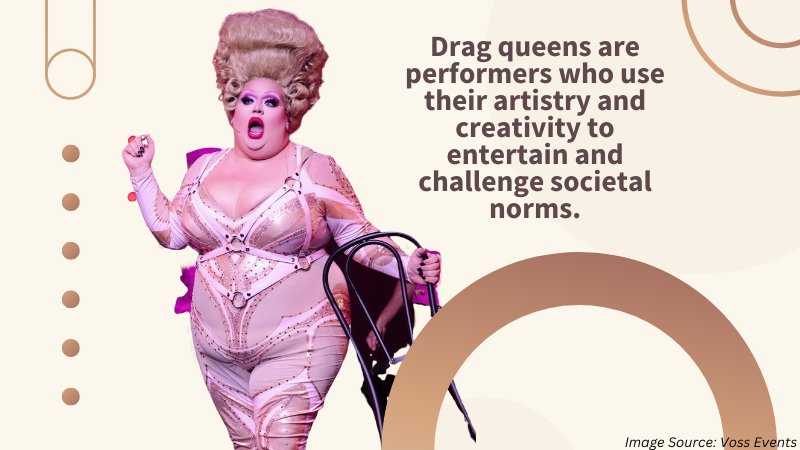
Drag queens are performers and artists who differ from crossdressers in many ways.
While both groups may cross traditional gender boundaries, they do so for different reasons and in different ways.
Drag queens have been around since ancient times when people would dress up in costumes to entertain at festivals or other celebrations.
The word “drag” comes from a British term meaning “to wear clothing that is inappropriate to one’s gender.”
Drag queens are performers who use their artistry and creativity to entertain and challenge societal norms.
They often use exaggerated makeup, costumes, and wigs to create exaggerated and exaggerated versions of femininity or masculinity, and use their performances to play with gender and challenge traditional gender roles.
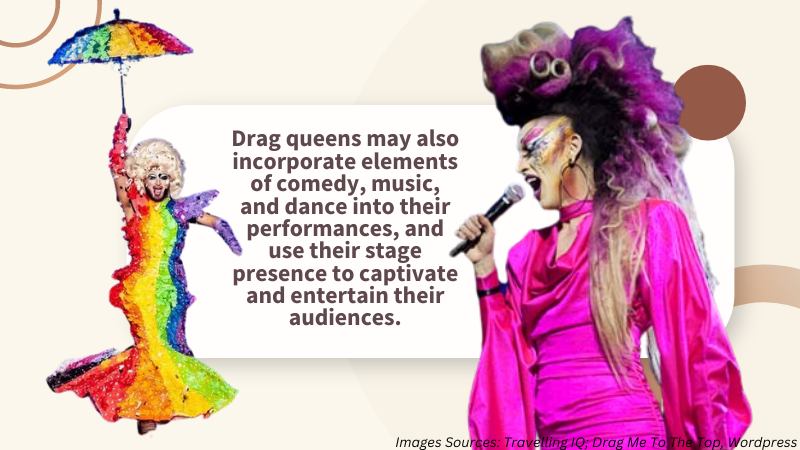
They often perform in clubs, bars, or other venues as part of drag shows, and are known for their extravagant costumes and performances.
Drag queens may also incorporate elements of comedy, music, and dance into their performances, and use their stage presence to captivate and entertain their audiences.
They can be seen in parades, at clubs and parties, or on stage in theaters.
Drag queens will often lip-sync to songs while they perform their routines.
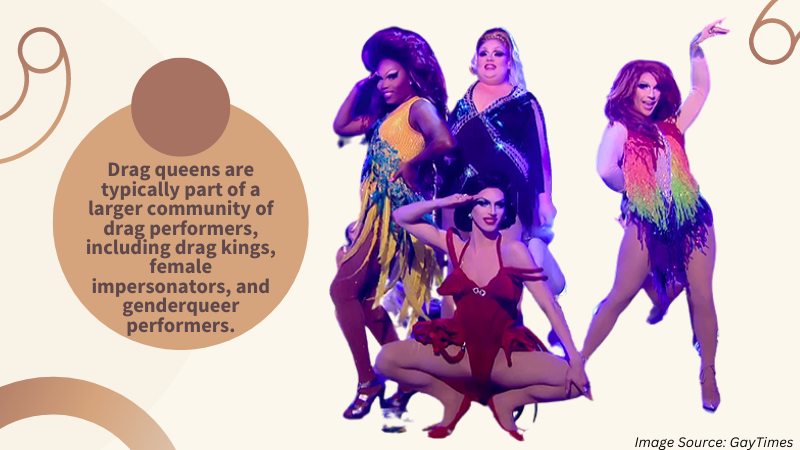
The goal of a drag queen is to entertain people with their performance as well as their looks.
They often consider themselves artists and performers, and may also be involved in writing and choreographing their own acts.
Some drag queens are transgender women who have transitioned from male to female, but many drag queens identify as gay men or bi-sexual men.
Drag queens are typically part of a larger community of drag performers, including drag kings, female impersonators, and genderqueer performers.
Crossdressers
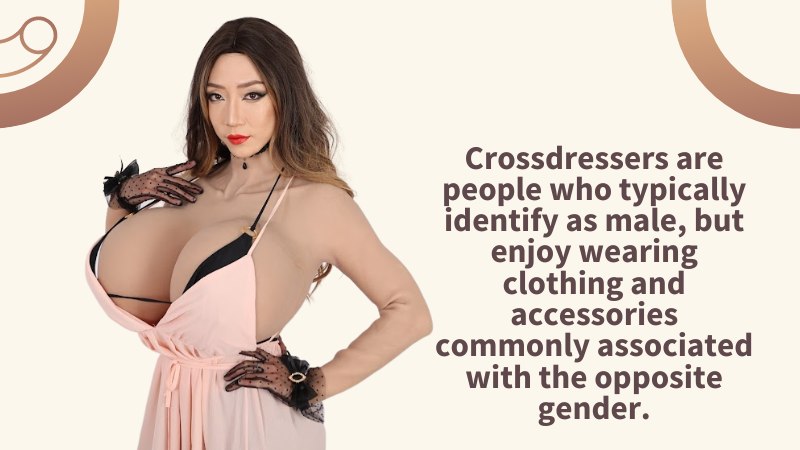
Crossdressers are people who typically identify as male, but enjoy wearing clothing and accessories commonly associated with the opposite gender.
These individuals may or may not be attracted to other people, but they usually enjoy crossdressing for their own personal enjoyment.
Crossdressing may help some people feel comfortable with their bodies and explore their own gender identity without having to make any major changes to their outward appearance or lifestyle.
Crossdressing can be done in many different ways.
Some crossdressers will only wear women’s underwear while others may wear women’s clothing and makeup on a regular basis.
Some crossdressers will hide their identity by changing their voice when they speak or by using a fake name if they are out in public.
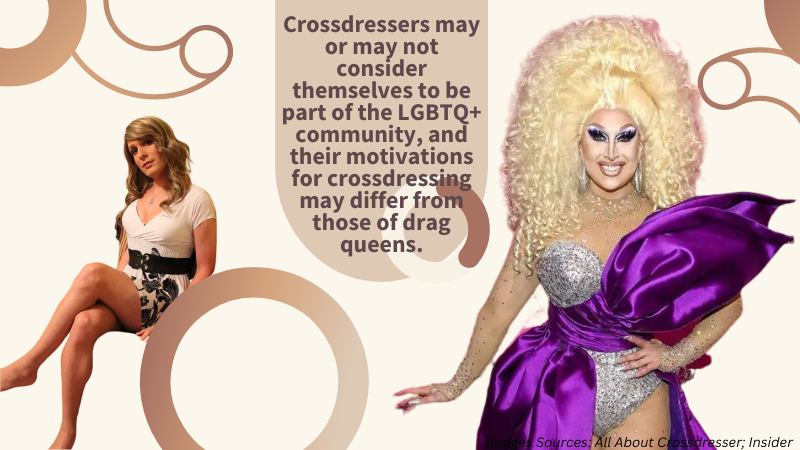
Crossdressing can be an expression of gender identity or a way to explore feelings about gender norms.
Crossdressers, however, are individuals who wear clothing typically associated with the opposite gender.
They may do so for a variety of reasons, including personal expression, sexual gratification, or simply for fun.
Crossdressers may or may not consider themselves to be part of the LGBTQ+ community, and their motivations for crossdressing may differ from those of drag queens.
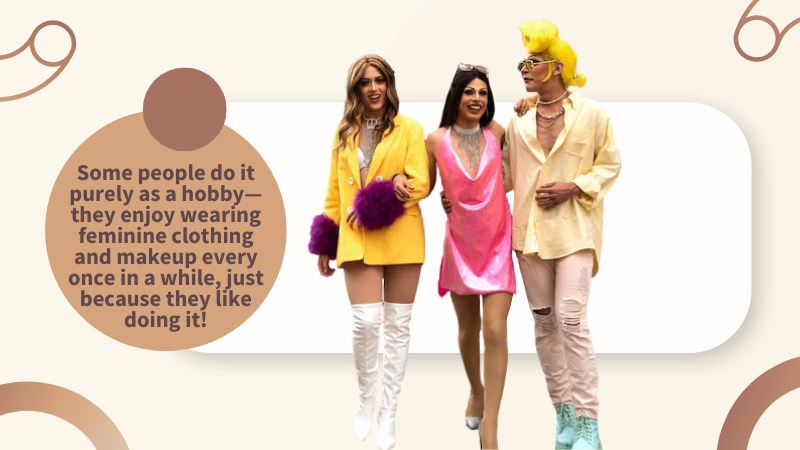
Some crossdressers do it because they feel like they were born into the wrong body—that they have always felt different than their peers but did not know how to express that feeling until recently when they discovered crossdressing online or through friends who crossdress.
Some people do it purely as a hobby—they enjoy wearing feminine clothing and makeup every once in a while, just because they like doing it!
How do they differ?
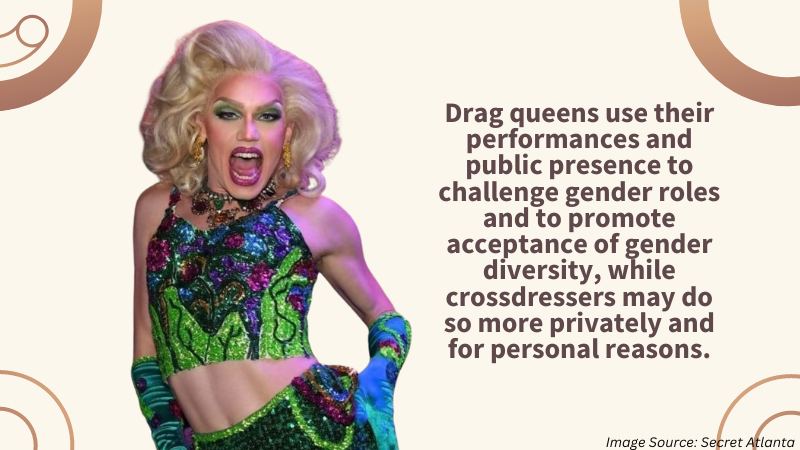
Drag queens and crossdressers are often confused as to their differences.
This can lead to a lot of misunderstandings, which can be stressful for both parties.
There are some key differences between the two identities that need to be considered when dealing with these individuals, especially when interacting with them in a professional capacity.
Drag queens use their performances and public presence to challenge gender roles and to promote acceptance of gender diversity, while crossdressers may do so more privately and for personal reasons.
This is not to say that crossdressers are not advocates for change and acceptance, they also are fighting for it every single day.
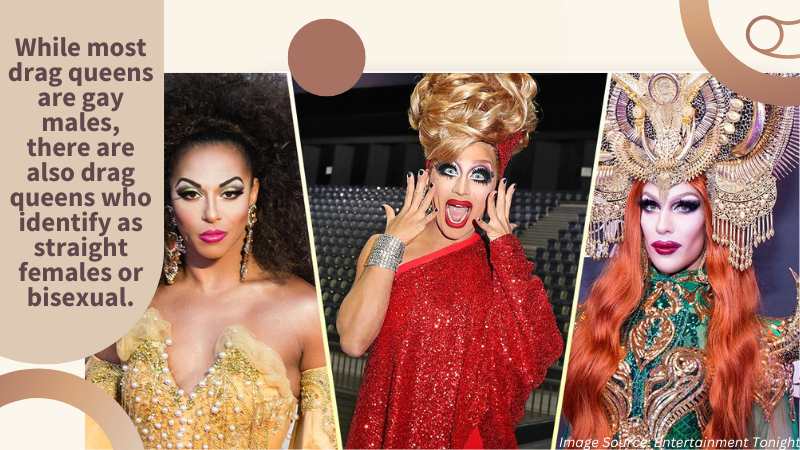
Drag queens often perform dance routines or lip-sync to music, while crossdressers may do so or just wear their outfits in public.
While most drag queens are gay males, there are also drag queens who identify as straight females or bisexual.
Crossdressers can be of any gender and orientation.
Drag is different from crossdressing in that drag is an art form in and of itself.
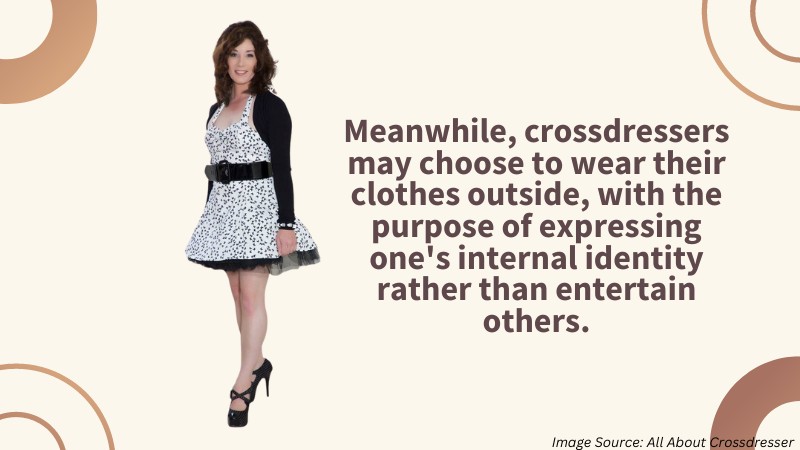
Drag performers are often more theatrical than crossdressers, who may not have the same level of interest in stage performance.
The performance aspect of drag can include singing, dancing, lip-synching, comedy routines, etc., while the appearance of a crossdresser may be more dependent on how they feel on a given day.
Drag queens may also go out into public without being recognized as drag queens, since they are not wearing costumes when they are out of character.
Meanwhile, crossdressers may choose to wear their clothes outside, with the purpose of expressing one’s internal identity rather than entertain others.
How are they the same?
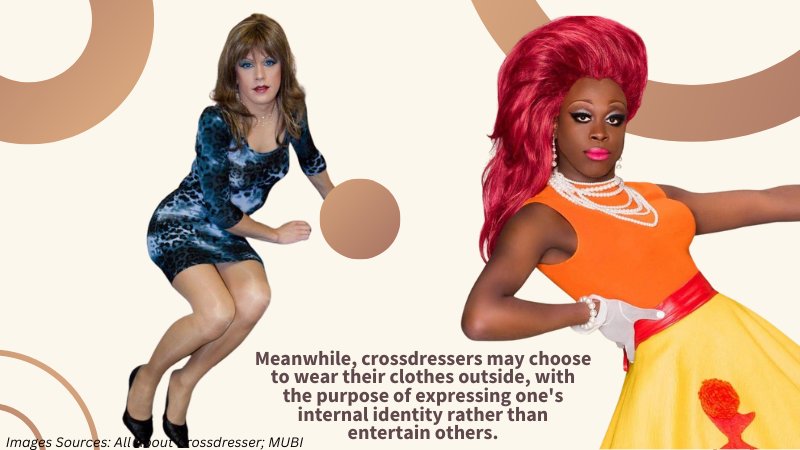
Both of these groups might be considered “gender benders,” which means that they intentionally break with social expectations for how their gender should be expressed.
Crossdressers and drag queens are similar in that they both cross traditional gender boundaries and challenge traditional gender norms.
One way that crossdressers and drag queens are similar is that they both may challenge societal expectations about gender and clothing.
By wearing clothing typically associated with the opposite gender, they can challenge traditional gender roles and expectations and promote a more fluid understanding of gender.
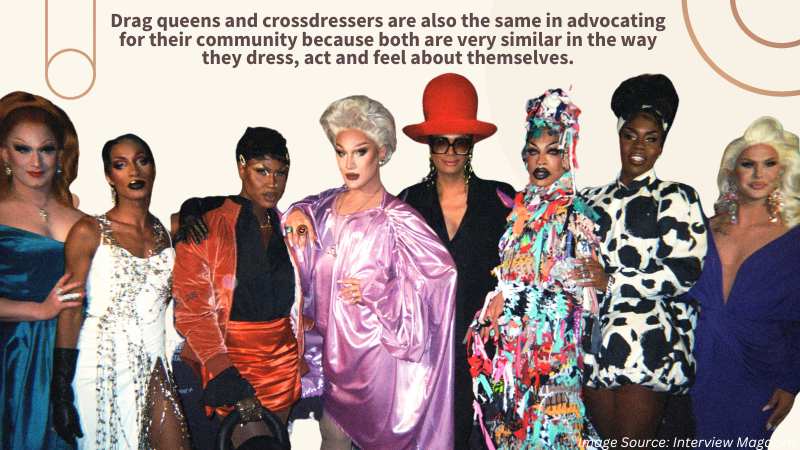
Drag queens and crossdressers are also the same in advocating for their community because both are very similar in the way they dress, act and feel about themselves.
They both have a hard time fitting into the gender roles assigned to them by society.
They want to express their true selves through their clothing and actions.
Both crossdressers and drag queens may also be members of the LGBTQ+ community and may use their clothing choices to express their identities and challenge societal norms about sexuality and gender.
Drag queens and crossdressers are also the same in advocating rights for their community because they use both humor and style to bring attention to the issues they face.
They both also use their art as a way of expressing themselves and their identity, as well as to show others that there’s nothing wrong with being who you are.
Drag and Crossdressing Today
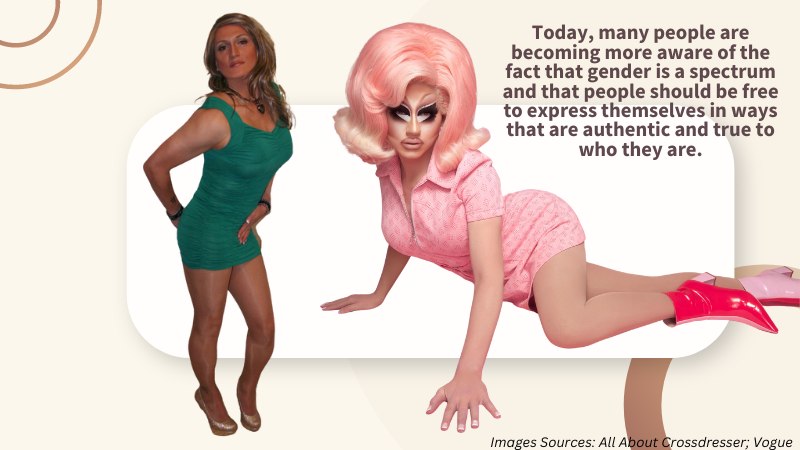
Crossdressing has become more popular in recent years because it’s become more accepted by society overall.
And because we live in an era where gender roles are changing.
Today, many people are becoming more aware of the fact that gender is a spectrum and that people should be free to express themselves in ways that are authentic and true to who they are.
This shift in societal attitudes has likely contributed to the increased popularity of crossdressing.
Meanwhile, drag queens have become popular celebrities in recent years thanks to shows like RuPaul’s Drag Race.
The show focuses on teaching contestants how to become successful drag performers.
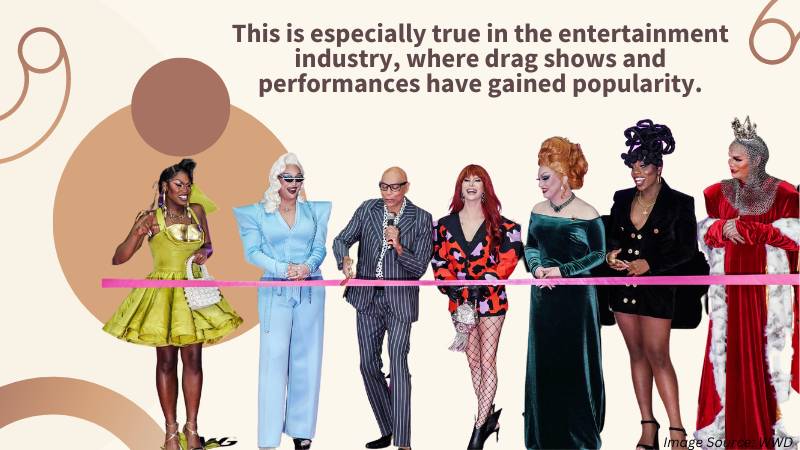
In recent years, there has been a greater acceptance of gender expression and non-binary identities, and as a result, activities like crossdressing and drag have become more mainstream.
This is especially true in the entertainment industry, where drag shows and performances have gained popularity.
The increased visibility of these forms of gender expression has likely contributed to a greater understanding and acceptance of them in society.
Drag and crossdressing are both accepted, but not in all cultures.
Some cultures have more of an acceptance of drag than others, and some cultures don’t really have a strong opinion about it.
In the United States, there’s a lot of support for drag culture and crossdressing.
In fact, there’s even an entire festival dedicated to celebrating both things, like DragCon.
Conclusion
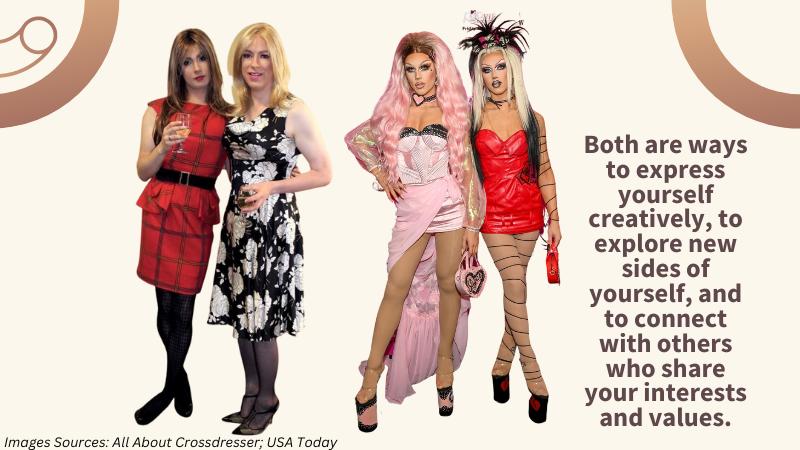
There is great importance in respecting and valuing the diverse experiences and identities of both drag queens and crossdressers, and in fostering an inclusive and welcoming community for all individuals.
Both are ways to express yourself creatively, to explore new sides of yourself, and to connect with others who share your interests and values.
The world needs more empathy, creativity, and self-expression—and drag queens and crossdressers are here for all three!
- Crossdresser: The Behavior, Origins, And Social Context
- Crossdresser vs. Transgender: What’s the Difference and Why Does It Matter?
- Why Do Some Straight Men Enjoy Crossdressing?
- 7 Best Mtf Trans and Crossdresser Podcasts in 2024
- Journey With Roanyer : Your Beginner Crossdressing Store
- The Intersection of Cosplaying and Crossdressing
Established in 2009, We are a recognized manufacturer and seller of professional crossdressing products.
It is our aim to become not just the most creative manufacturer but also a very considerate seller, as we provide the best quality products for crossdressers all around the world.
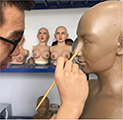
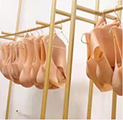



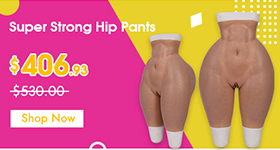

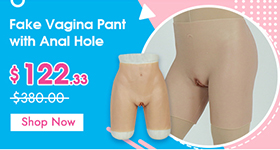




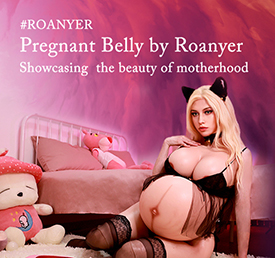

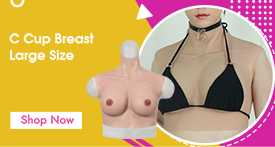
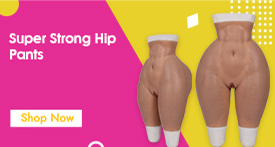
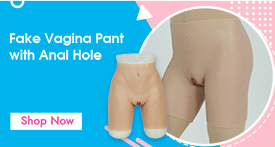

 Breast Forms
Breast Forms  Body Suit
Body Suit  Realistic Mask
Realistic Mask  Femini Girdle
Femini Girdle Hip & Butt Enhancement (8)
Hip & Butt Enhancement (8) Penis Prosthesis
Penis Prosthesis Fake Muscle
Fake Muscle Bikini
Bikini  Wig
Wig  Corsets
Corsets Course
Course service@roanyer.com
service@roanyer.com +8618652200711
+8618652200711 Facebook
Facebook YouTube
YouTube Twitter
Twitter Instagram
Instagram




